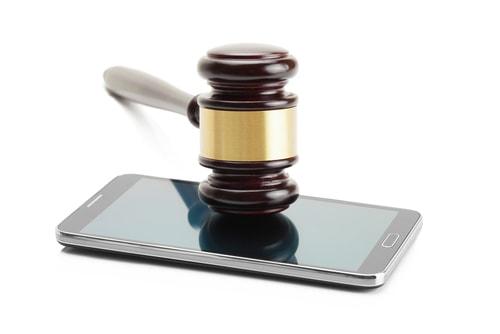Court: Police Use of Stingray Devices Unconstitutional Without a Warrant
 Another court has issued a ruling that effectively tells police, "Just because you are able to track people does not mean that you are allowed to do so." The decision was handed down by an appeals court in Washington D.C.—the District’s equivalent of a state appellate court—and addressed the use of cell-site simulator devices. The devices are more commonly known by the brand name StingRay and allow law enforcement to locate a cell phone by sending and receiving signals that imitate the performance of a cell tower. The ruling is the latest in a string of similar court decisions that have held the use of StingRays without a warrant to be a violation of a suspect’s Fourth Amendment rights in most cases.
Another court has issued a ruling that effectively tells police, "Just because you are able to track people does not mean that you are allowed to do so." The decision was handed down by an appeals court in Washington D.C.—the District’s equivalent of a state appellate court—and addressed the use of cell-site simulator devices. The devices are more commonly known by the brand name StingRay and allow law enforcement to locate a cell phone by sending and receiving signals that imitate the performance of a cell tower. The ruling is the latest in a string of similar court decisions that have held the use of StingRays without a warrant to be a violation of a suspect’s Fourth Amendment rights in most cases.
Great Power
Cell-site simulators give the police the ability to track a cell phone and, sometimes, intercept phone calls and text messages. The problem, however, is that the simulators collect the same information from any other phone in the vicinity. As a result, the police can, in effect, track any cell phone without a person’s knowledge or consent. Civil liberty advocates say that such capabilities must be limited by requiring a warrant, as tracking a person’s cell phone without approval from the court constitutes an unreasonable search under the Fourth Amendment.
The D.C. Case
In the case in question, the suspect allegedly robbed and assaulted two women, taking their cell phones in both cases. By comparing phone records, the police were able to find a mobile phone number they believed to be linked to the suspect. The phone companies reportedly helped the police determine a general location for all three phones. Court records indicate that the police went to that area of the city and employed a StingRay device to track the suspect’s phone. By collecting incoming signals, the StingRay pinpointed the location of the phone, leading police to a parked car where the suspect was sitting.
At trial, the court allowed the seizure of the phone via the StingRay device, which subsequently led police to a knife allegedly used in the attacks, as well as the victims’ phones and other incriminating evidence. On appeal, however, the appeals court ruled that all of the evidence should have been suppressed as "fruit of the poisonous tree."
In the appeals court’s opinion, "A cell-site simulator allows police officers who possess a person’s telephone number to discover that person’s precise location remotely and at will." Therefore, a warrant must be obtained before the police can be allowed to do so. The court acknowledged that the use of the StingRay device to track either one of the victims’ phones would have been perfectly legal since they had consented to such searches.
Protect Your Rights
If you have been arrested and charged with a crime as the result of an illegal search—including one conducted with a StingRay device—contact an experienced Connecticut criminal defense attorney. Call 860-290-8690 for a free consultation at Woolf & Ross Law Firm, LLC today.
Sources:
https://www.washingtonpost.com/news/true-crime/wp/2017/09/21/police-use-of-stingray-cellphone-tracker-requires-search-warrant-appeals-court-rules/
https://www.dccourts.gov/sites/default/files/2017-09/15-CF-322.pdf






